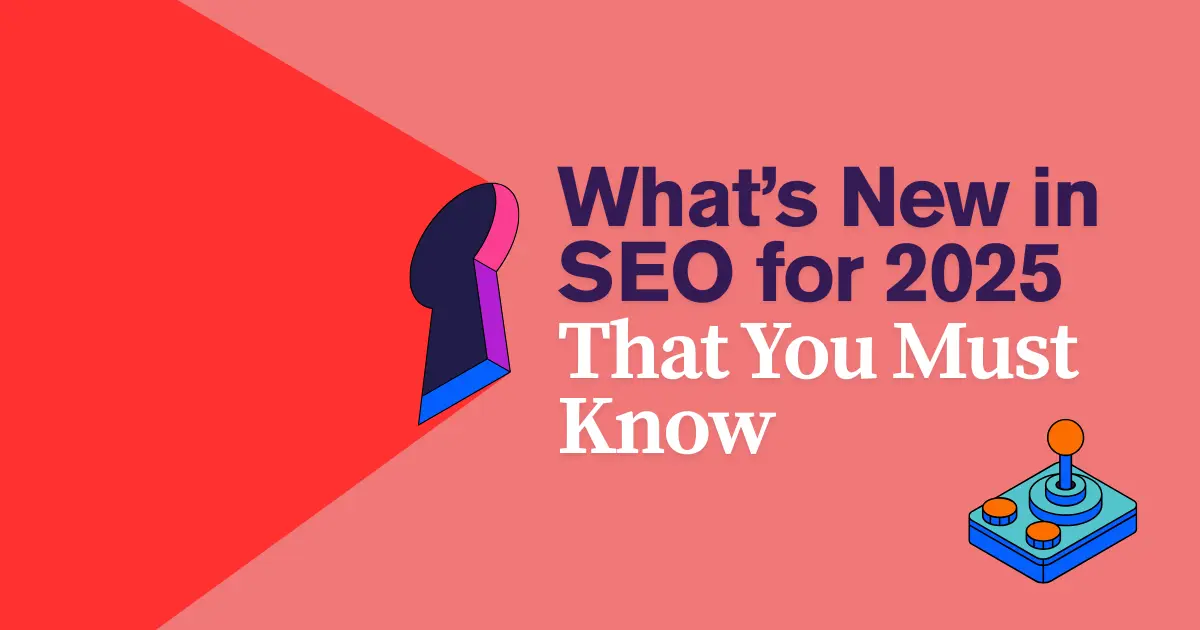What’s New in SEO for 2025 That You Must Know
The digital marketing landscape has undergone seismic shifts in 2025, with search engine optimization evolving at an unprecedented pace. Traditional SEO strategies that worked just two years ago are now obsolete, replaced by sophisticated approaches that align with artificial intelligence, user intent, and rapidly changing search behaviors. Understanding these transformations isn’t just beneficial—it’s essential for maintaining visibility in an increasingly competitive digital ecosystem.

AI-Generated Content Detection and Quality Signals
Search engines have developed sophisticated methods to identify and evaluate AI-generated content throughout 2025. Rather than penalizing all automated content, algorithms now focus on quality indicators that distinguish valuable AI-assisted writing from low-effort spam. The key lies in demonstrating genuine expertise, originality, and user value regardless of content creation method.
Successful websites like HubSpot.com and ContentMarketingInstitute.com have shown how to effectively integrate AI tools while maintaining editorial standards that satisfy both users and search algorithms. These platforms combine automated research with human expertise, creating content that ranks well because it genuinely serves user needs.
The emphasis has shifted toward content authenticity rather than origin. Search engines now evaluate whether information is accurate, comprehensive, and presented in ways that truly help users accomplish their goals. This means AI-generated content can rank highly when it meets these criteria, while human-written content fails if it lacks substance or relevance.
Voice Search and Conversational Queries
Voice search optimization has matured beyond simple keyword targeting to embrace natural conversation patterns. Users increasingly interact with search engines through extended dialogues, asking follow-up questions and seeking detailed explanations rather than quick answers.
Platforms like Moz.com and SearchEngineLand.com have adapted their content strategies to address conversational queries by creating comprehensive resource pages that anticipate user question sequences. Instead of targeting single keywords, they optimize for question clusters that reflect how people naturally seek information.
The technical implementation involves structuring content to answer not just primary questions but also the logical follow-ups that users typically ask. This approach has proven effective for websites like WebMD.com and Investopedia.com, which excel at providing layered information that satisfies both initial queries and deeper exploration needs.
Enhanced Entity-Based SEO
Search engines have become remarkably sophisticated at understanding relationships between entities—people, places, concepts, and organizations. This advancement has transformed how optimization professionals approach keyword research and content planning.
Rather than focusing solely on individual keywords, successful sites like Wikipedia.org and Britannica.com demonstrate how to build content around entity relationships. They create comprehensive topic clusters that establish authority through interconnected information networks.
E-commerce platforms such as Amazon.com and eBay.com have leveraged entity-based optimization to improve product discovery. By clearly defining product attributes, brand relationships, and category connections, they help search engines understand context and serve more relevant results to users.
Core Web Vitals Evolution
Page experience signals have evolved significantly throughout 2025, with new metrics joining the established Core Web Vitals framework. Search engines now evaluate not just loading speed and visual stability but also interaction responsiveness and content accessibility across different devices and network conditions.
Technical leaders like Google PageSpeed Insights and performance-focused sites such as GTmetrix.com have adapted their recommendations to address these expanded requirements. The emphasis has shifted from achieving minimum thresholds to providing consistently excellent user experiences across all interaction types.
Successful implementation requires holistic approaches that consider user journey completion rates rather than isolated performance metrics. Websites like Shopify.com and Squarespace.com demonstrate how technical optimization supports business objectives while satisfying search engine requirements.
Visual and Video Search Optimization
Visual content has become central to search strategy in 2025, with algorithms capable of understanding image and video content with remarkable accuracy. This advancement has created new optimization opportunities for businesses across all industries.
Platforms like Pinterest.com and YouTube.com continue to lead in visual search optimization, demonstrating how proper tagging, contextual descriptions, and user engagement signals contribute to discovery. Their approaches show how visual content can drive significant organic traffic when optimized correctly.
The technical aspects involve optimizing alt text, file names, and surrounding content to provide context that helps algorithms understand visual information. Success stories from sites like Etsy.com and Unsplash.com illustrate how comprehensive visual optimization strategies can dramatically improve search visibility.
Local SEO and Hyperlocal Targeting
Local search has become increasingly sophisticated, with algorithms understanding subtle geographical nuances and user location context. The hyperlocal approach goes beyond traditional city-based targeting to consider neighborhood-level preferences and micro-location factors.
Businesses like Yelp.com and TripAdvisor.com have mastered this evolution by creating location-specific content that addresses local user needs while maintaining broader relevance. Their strategies demonstrate how to balance local optimization with scalable content approaches.
Service-based businesses have found success by creating location-specific landing pages that address local market conditions, regulations, and customer preferences. Examples from platforms like Angie’s List and HomeAdvisor.com show how to implement these strategies without creating thin or duplicate content.
Featured Snippet and Zero-Click Optimization
The landscape of featured snippets has become more competitive and diverse throughout 2025. Search engines now display various snippet formats, from traditional text boxes to interactive elements and multi-media presentations.
Content optimization strategies have evolved to target specific snippet types while maintaining comprehensive page value. Sites like WikiHow.com and MasterClass.com excel at creating content structured for snippet capture while ensuring users find additional value by visiting the full page.
The challenge lies in balancing snippet optimization with click-through generation. Successful approaches involve providing sufficient value in snippet-friendly formats while creating compelling reasons for users to visit the source website for complete information.
Mobile-First Indexing Maturation
Mobile-first indexing has reached full maturation in 2025, with search engines primarily evaluating desktop sites based on their mobile versions. This shift has profound implications for content strategy, technical implementation, and user experience design.
Progressive web applications and mobile-optimized experiences have become standard rather than optional. Leading examples from Twitter.com and LinkedIn.com demonstrate how to create seamless cross-device experiences that satisfy both user needs and search engine requirements.
The technical considerations extend beyond responsive design to encompass mobile-specific functionality, loading optimization, and interaction patterns. Success requires understanding how users differently engage with content across devices and optimizing accordingly.
Expertise, Authoritativeness, and Trustworthiness (E-A-T) Enhancement
The E-A-T framework has become more nuanced and industry-specific throughout 2025. Search engines now evaluate expertise signals differently across various content categories, with heightened scrutiny for topics that impact user welfare, financial decisions, or health outcomes.
Authoritative sites like Mayo Clinic and Harvard Business Review continue to exemplify best practices in demonstrating expertise through author credentials, citation practices, and comprehensive topic coverage. Their approaches show how to build topical authority that translates into search visibility.
Building trustworthiness has become particularly important for newer websites and brands. Successful strategies involve transparent author information, clear sourcing practices, and consistent demonstration of subject matter expertise across multiple content pieces.
Algorithm Adaptation and Future-Proofing
The rapid pace of algorithm evolution in 2025 has made adaptability more important than adherence to specific tactics. Successful SEO strategies now focus on fundamental value creation rather than attempting to game specific ranking factors.
Websites that have thrived through multiple algorithm updates, such as Neil Patel’s blog and Backlinko.com, demonstrate approaches that remain effective across different search engine changes. Their strategies emphasize user value, comprehensive coverage, and authentic expertise over technical manipulation.
Future-proofing requires understanding the underlying principles driving search engine evolution rather than focusing on current ranking factors. The most successful approaches involve creating content and experiences that would be valuable regardless of specific algorithm requirements.
Conclusion
The SEO landscape of 2025 rewards websites that prioritize genuine user value while maintaining technical excellence. Success requires balancing automation capabilities with human expertise, understanding user intent beyond keyword matching, and creating comprehensive experiences that satisfy both immediate needs and deeper exploration desires.
The websites and strategies that are thriving in this environment share common characteristics: they focus on user success rather than just search engine rankings, they demonstrate genuine expertise in their subject areas, and they adapt quickly to changing user behaviors and technological capabilities.
Moving forward, the most effective SEO approaches will continue emphasizing authentic value creation, technical excellence, and deep understanding of user needs. The tools and tactics may evolve, but these fundamental principles will remain central to search success.




